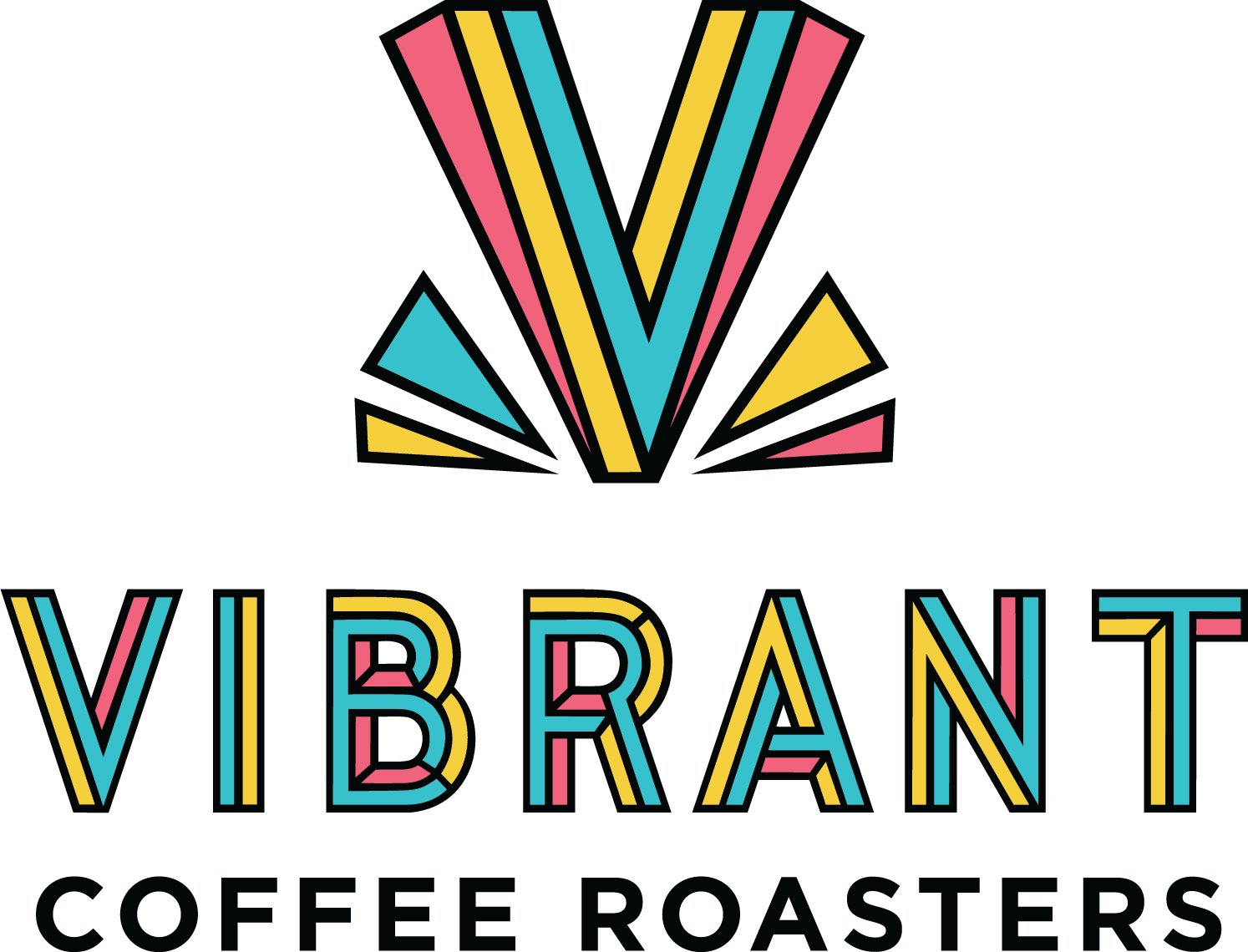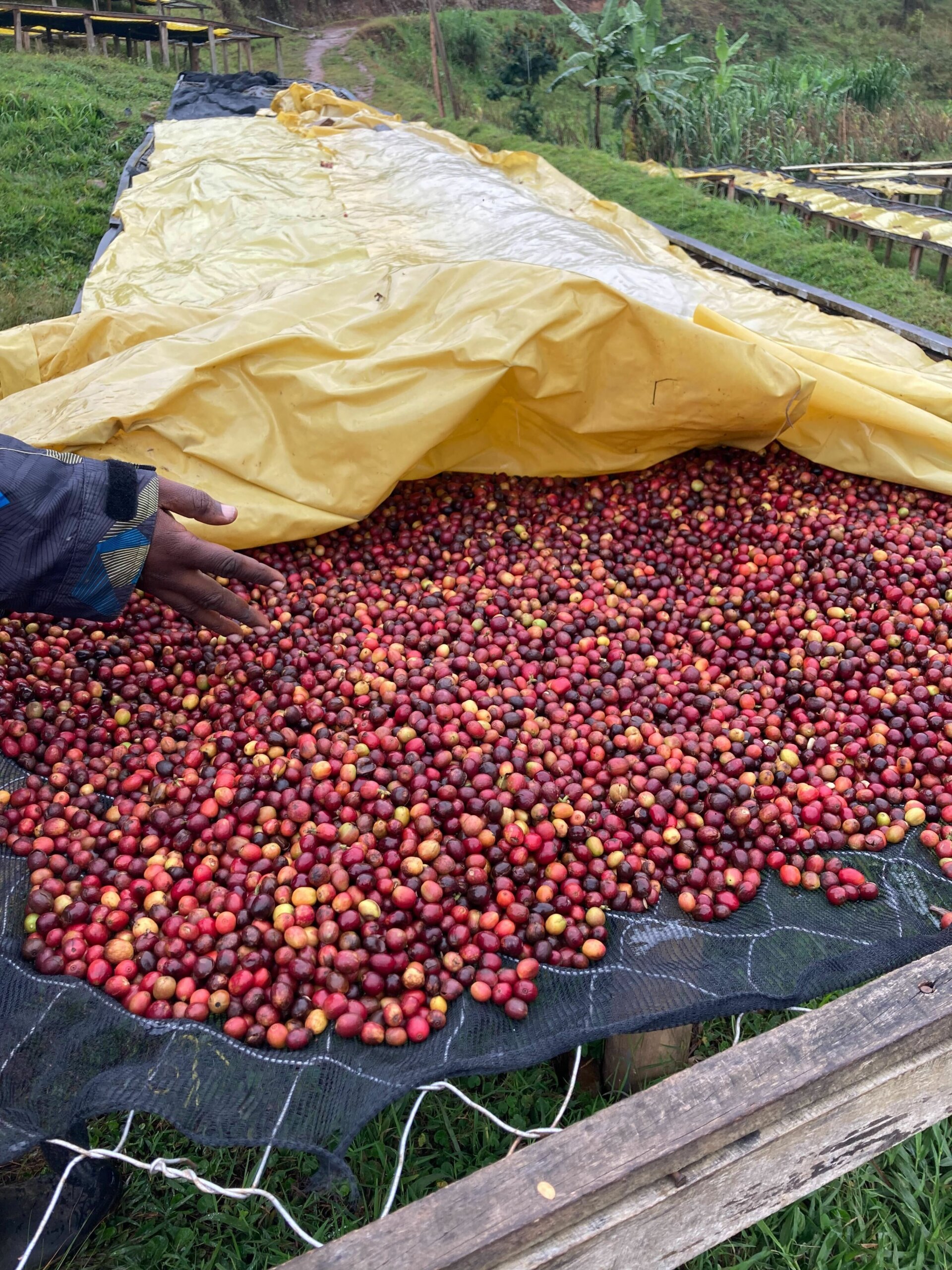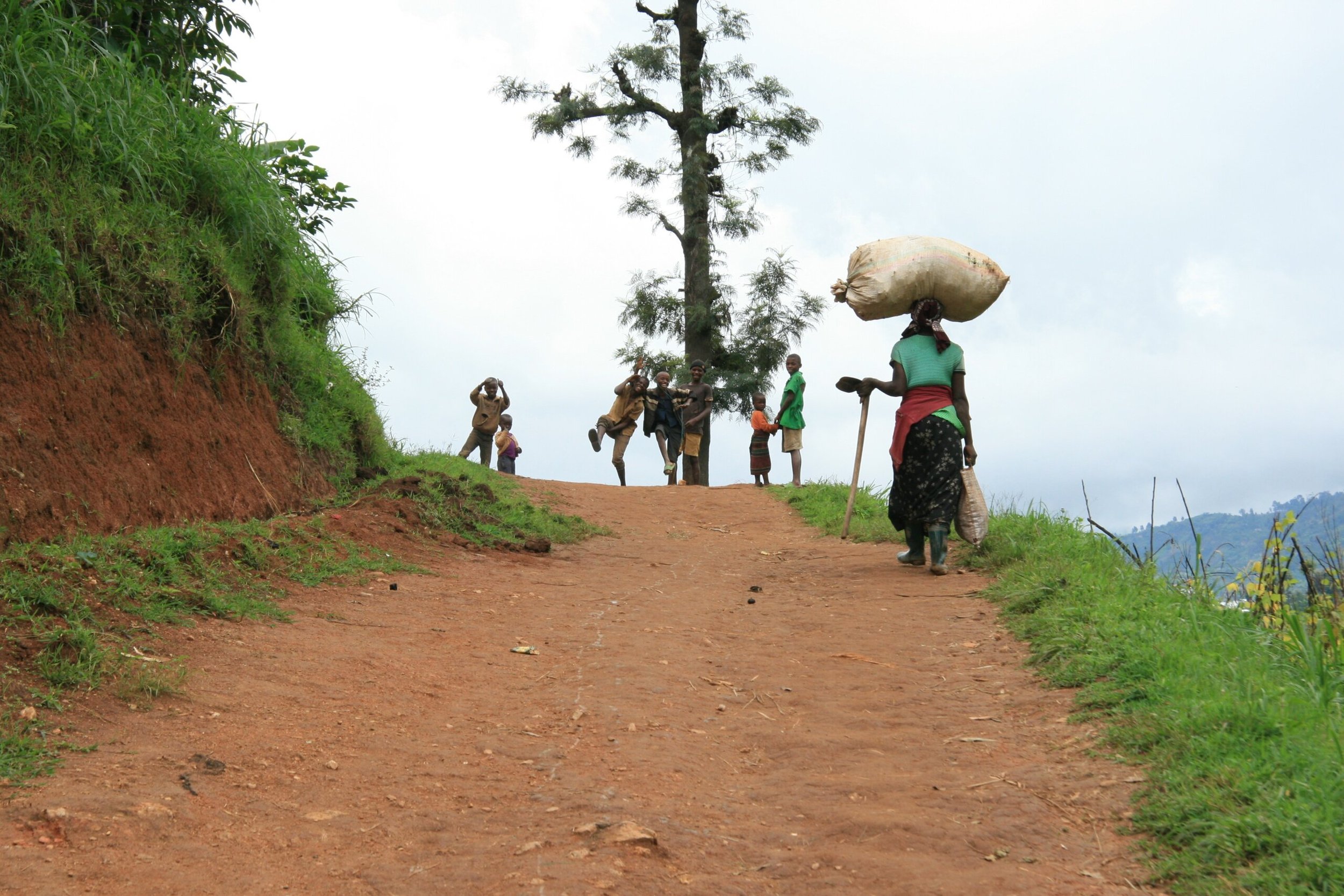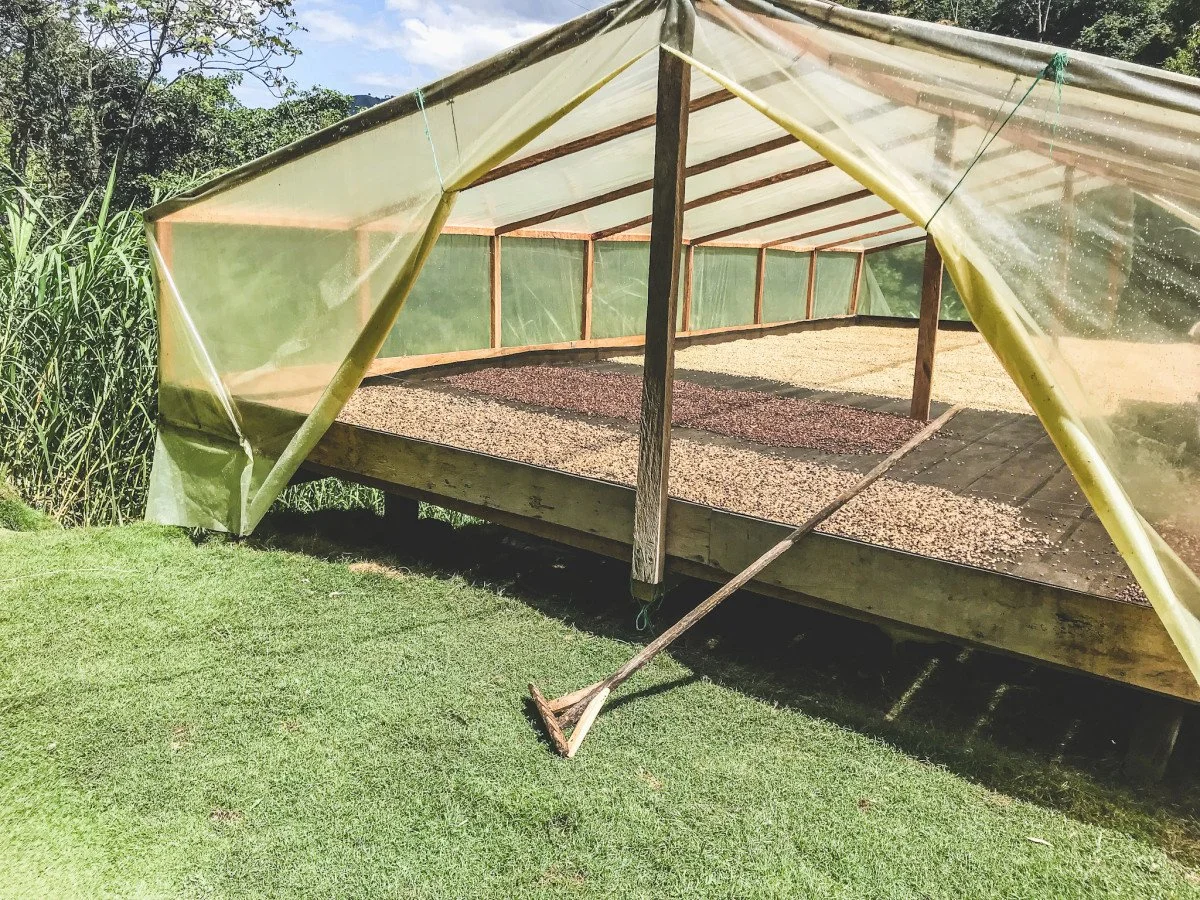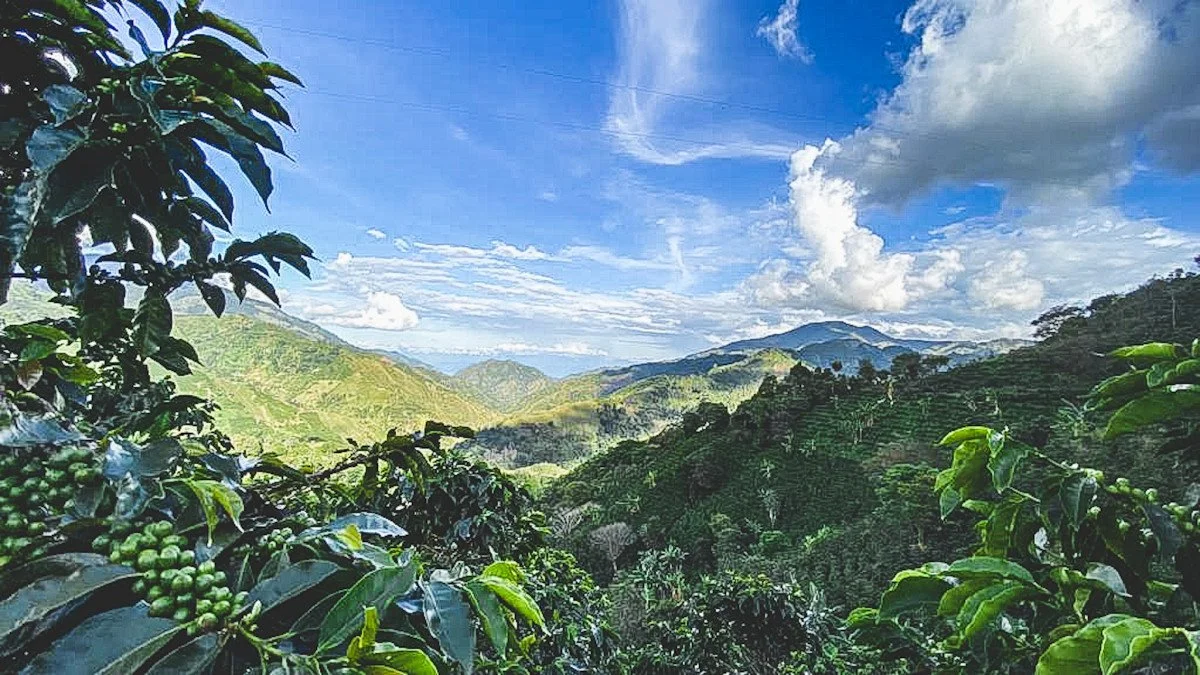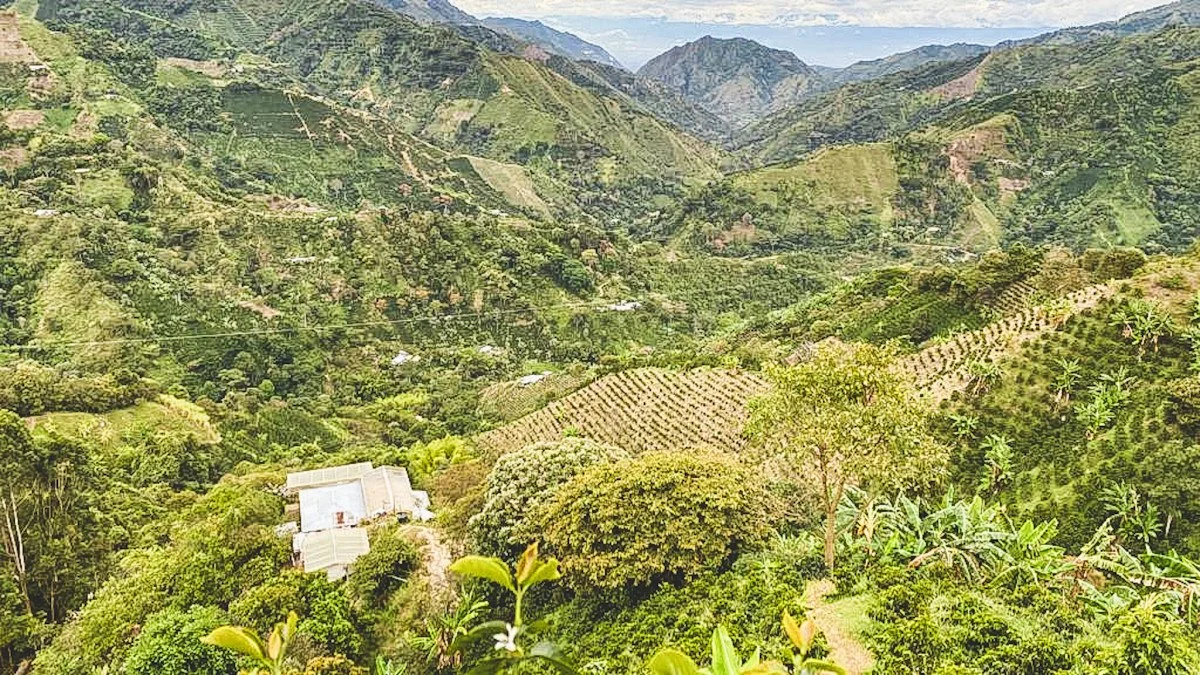Colombia Nativo Nogales Thermal Shock Natural Caturra
Limited Roast - Light
COLOMBIA - THERMAL SHOCK NATURAL
Ooh baby, this is a good one! It reminds us of some of those Edwin Noreña coffees that taste like hops & beer, except this one leans a little more towards rose-like florals than the more herbaceous hops. There is tons of candy-like sweetness too, plus big time citric acidity like tangerine and lime. This is an exceptionally clean natural, likely due to the thermal shocking - we do not taste any fermenty funk at all. Enjoy!
PRODUCER:
Ricaurte Hernández, Suldery Arang, and their children
ORIGIN:
Los Nogales, Pitalito, Huila
VARIETY:
Caturra
ELEVATION:
1,750 - 1,950 masl
PROCESS:
Thermal Shock Natural
HARVEST:
Winter 2023-2024
TASTING:
Candied citrus & hops, floral
IMPORTANT INFO ON BLACK LABEL COFFEE SHIPMENTS:
Black Label coffees only roast and ship on Tuesdays (any order that includes a Black Label coffee will get shipped the following Tuesday).
Why We Love This Roast
Buckle up, you’re in for a real ride with this one!
This gem comes to us from the Hernández family, who have been farming for five generations. Originally from Nariño, Ricardo Hernández and Concepción Castillo moved to the mountainous district of Bruselas - more specifically, what is now El Diamante village in Pitalito, Huila. Ricardo and Concepción had eight children, the youngest of which was named Ricaurte. Ricaurte has been farming coffee for his entire life, and ended up marrying Suldery Arango, an enterprising woman with coffee running through her veins. Ricaurte and Suldery had eight children themselves, who now assist their parents in running Los Nogales.
So, what makes this coffee so special? Let’s start with the variety. Caturra is a natural mutation of the Bourbon variety, and, while not as flashy as Pink Bourbon, Gesha, Chiroso, etc, typically exhibits excellent cup quality with good sweetness and bright acidity.
Harvesting only perfectly ripe cherries and density-based sorting is of course paramount to cup quality. But the real interesting thing here is the thermal shock processing. First, the cherries are exposed to 80 degree Celsius water for 20 seconds, followed by rapid cooling with cold water for three to five minutes. The theory is that the increase in temperature opens up the pores in the parchment and silverskin and allows flavors from the fruit pulp to penetrate into the beans themselves. The temperature changes also controls which microorganisms are able to survive and thrive during the fermentation process. Manipulating which microorganisms are present allows the producer to control which volatile aromatic compounds develop during fermentation. In general, cooler fermentation leads to less acetic acid production, and cleaner, fresh fruit and floral profiles are obtained. Higher temperature fermentation tends to give funkier flavor profiles with tropical fruits, banana, and tartaric acidity dominating the cup.
The low temperature fermentation here gives us beautiful rose-like florals, hops, and bright, sweet citrus. You would never guess that this is a naturally-processed (120 hour fermentation) coffee!
Water Recommendation:
For those of you who want to get every last drop of excellence out of this coffee, our preferred brewing water (at least for cupping) is full-strength Third Wave Water (130ppm GH, 40ppm KH).
Full-strength Third Wave Water is our favorite because it is the sweetest and juiciest. Around 40ppm KH seems to be the right amount to still make the acidity of light roast coffees really pop without making them just taste one-dimensional and sour. We tend to look for the best combination of sweetness and acidity (combined, this is what we call juicy) and this water is what does the trick for this coffee.
Half-strength Third Wave Water (65ppm GH, 20ppm KH), which is nearly identical to Lance Hedrick’s Light & Bright water (60ppm GH, 25ppm KH), is just a little too lacking in fruit sweetness for our palates. The acidity really dominates the cup, which isn’t in itself a bad thing, but it just feels kind of like an underripe lemon, and the florals are not as present as they are with full-strength TWW.
Rao/Perger water (90ppm GH, 42ppm KH), as is often the case for our Black Label series coffees, might give the most complex cup, as there is more of a balance between the florals, sugary sweetness, and acidity. It just isn’t quite as sweet as full-strength TWW.
Philadelphia water (Baxter water supply) filtered with a three-stage carbon system with a little softening (somewhat similar to what a Brita pitcher would do) still gives an excellent cup profile but there is a slight increase in generic “coffee-like” flavor which slightly mutes the fruity profile of this coffee.
If this is all very confusing—check out our blog post on water for coffee!
